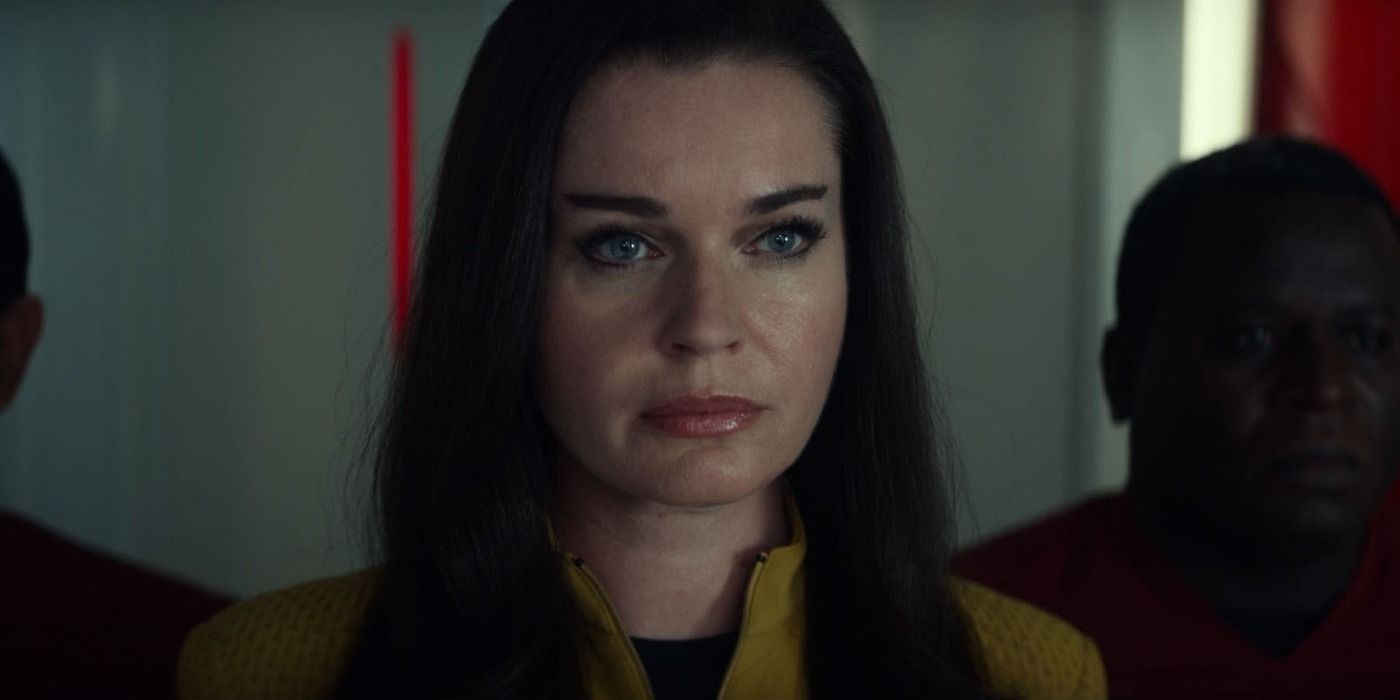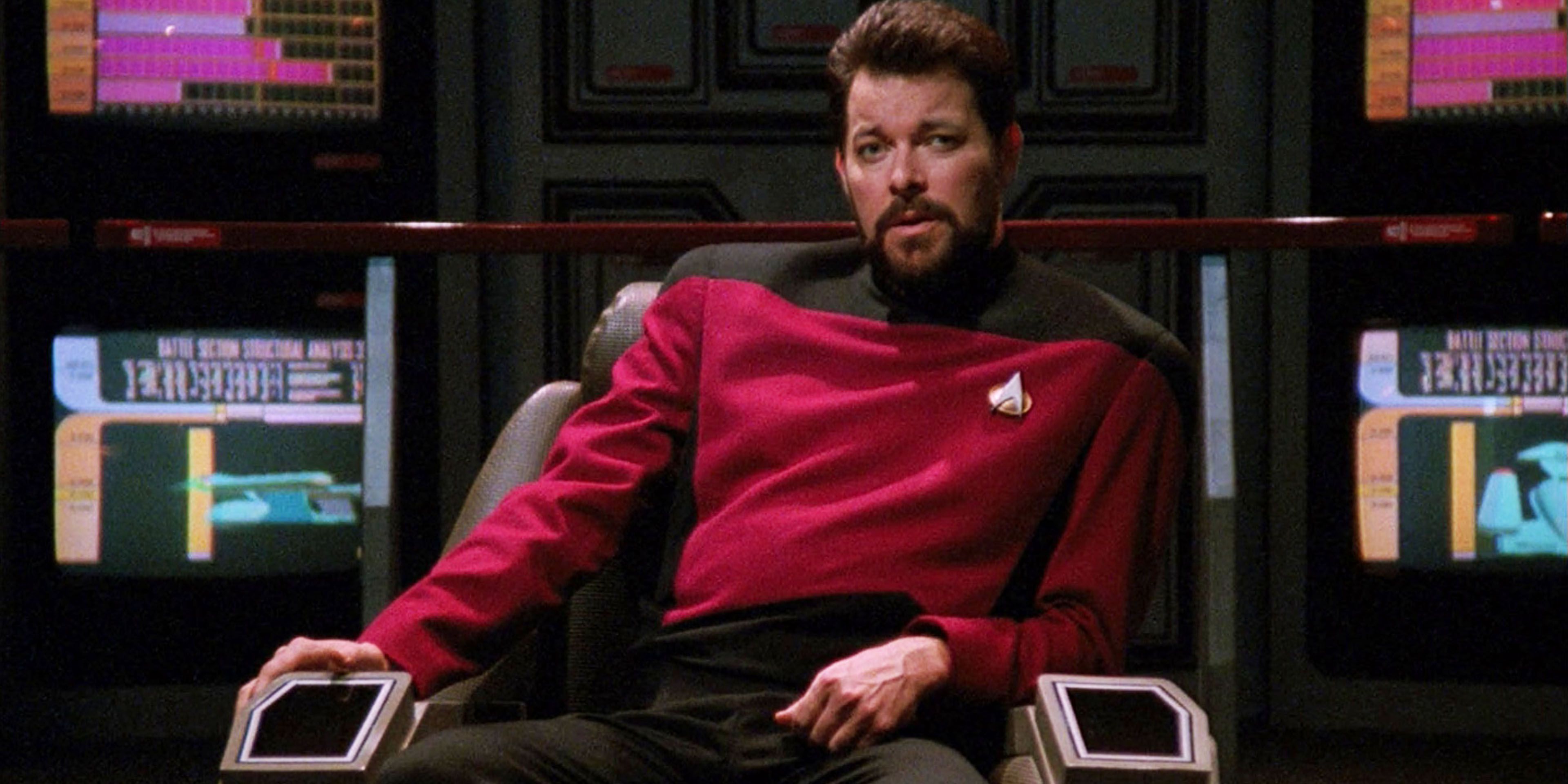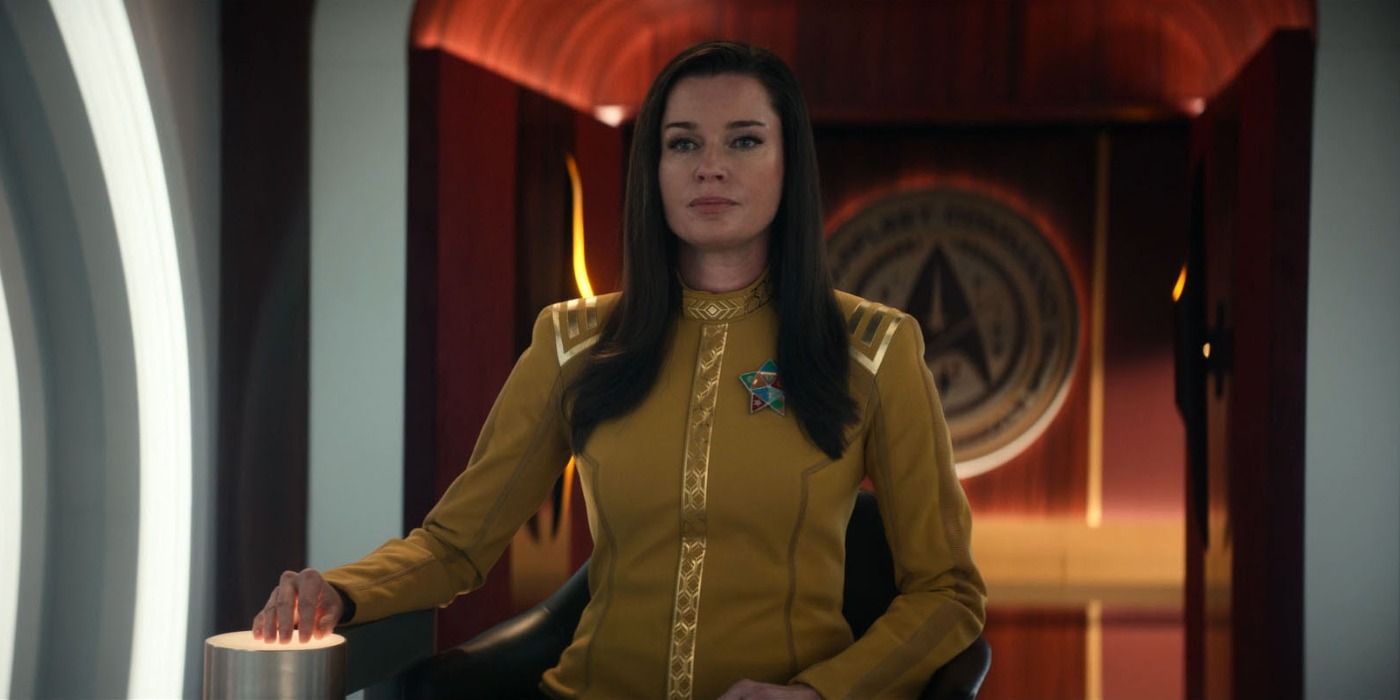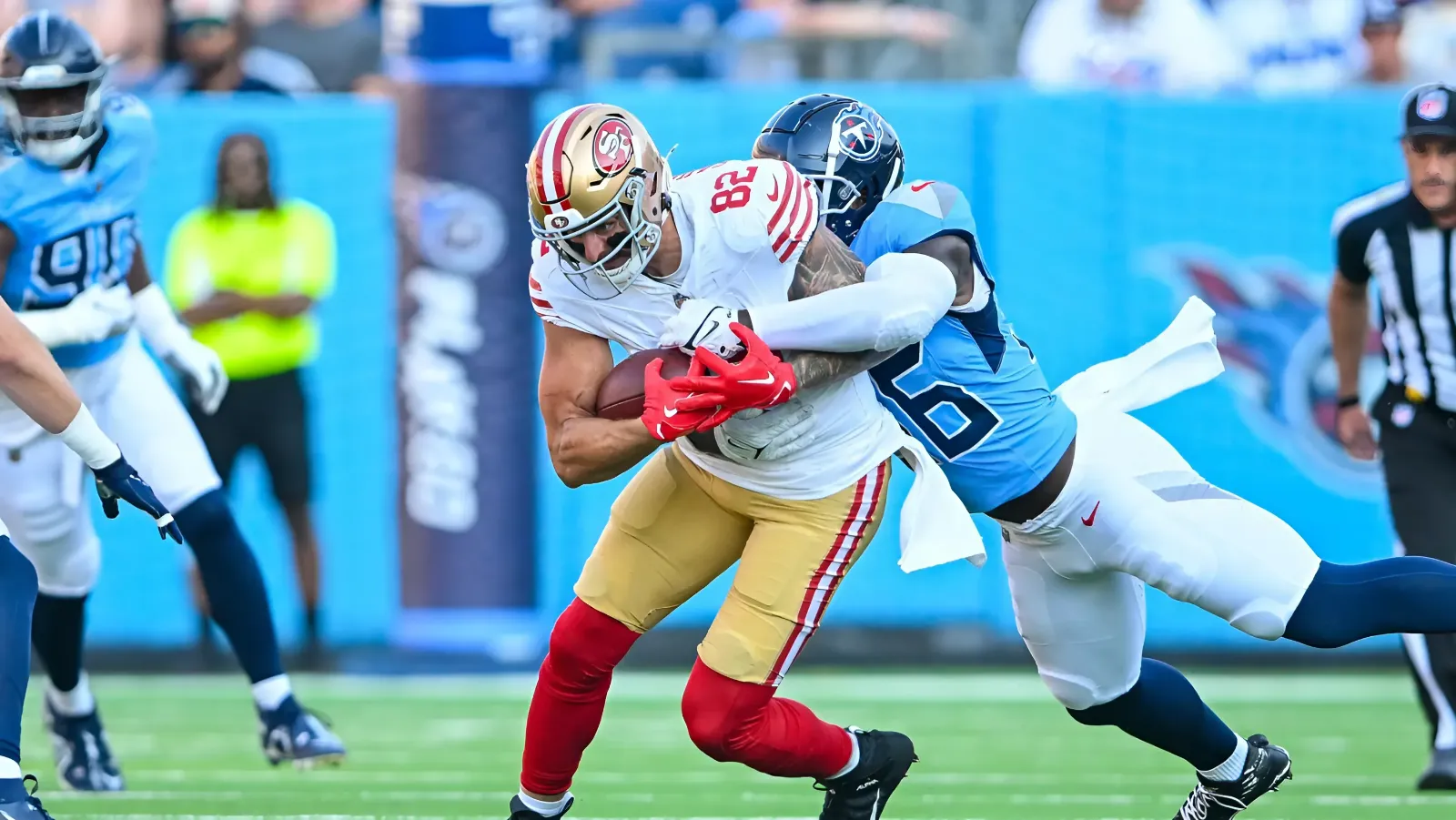The "Number One" nickname has a surprisingly personal meaning to Una-Chin Riley in Star Trek lore. Introduced in pilot episode "The Cage" and portrayed by Majel Barrett, Number One was cut from Star Trek: The Original Series when it began airing properly, but has since been handed a modern-day lifeline. Appearing in both Star Trek: Discovery and Strange New Worlds, Number One is currently played by Rebecca Romijn. Whereas Barrett's original was known exclusively as "Number One" during her sole Star Trek credit, the character's true name has subsequently been revealed as Una Chin-Riley.

Star Trek's "Number One" moniker is partially a reference to Una's rank aboard Captain Pike's Enterprise. The title typically denotes the ship's second-in-command, and has, after Majel Barrett, been used for Riker in The Next Generation, Saru in Star Trek: Discovery, and numerous others. Regardless, the case of Una Chin-Riley is a special one. Whereas the word was clearly just a nickname for the likes of Riker, Star Trek's "The Cage" acted like "Number One" was unequivocally Una's real name. Fortunately, Star Trek's deeper lore has a perfect explanation for that.
Una Chin-Riley's "Number One" Nickname Traces Back To Her Star Trek Origin Story
Una Was Number One Before It Became Cool

Several pieces of Star Trek literature illuminate the hidden meaning behind Una's nickname by delving into her backstory. Vulcan's Glory by D.C. Fontana, Children of Kings by David Stern, and Captain to Captain by Greg Cox all paint an image of Una's life before the Enterprise - one of duty, hard work, expectation, and achievement. According to these stories, Una's home planet of Illyria was an environment where "excellence is the only criterion that is accepted." Una stood out as the most capable among her peers, and the nickname "Number One" traces back to that point.
Una insists on being known as "Number One" to the point where it virtually becomes her sole name.
Printed Star Trek lore also explains that "Una" itself is a fabrication, used because the character's true Illyrian name is tricky for other species to wrap their tongues around. Meaning "one" in languages such as Italian, "Una" can, therefore, be interpreted as an extension of the character's existing "Number One" nickname.
For Una, being called "Number One" is not merely an acknowledgment of her status as second-in-command on the Enterprise. The nickname is a symbol of her success and a sign that she has prospered in the eyes of Illyrian culture. This detail helps to explain why, unlike Starfleet first officers like Riker who can take or leave it, Una insists on being known as "Number One" to the point where it virtually becomes her sole name.
The Original Meaning Behind Number One's Name In Star Trek & How It Shifted
It's All Riker's Fault

In the context of "The Cage" alone, Number One's name spoke to the nature of her character. Star Trek's pilot episode portrayed Majel Barrett's Starfleet officer as a cold, logic-driven figure largely devoid of emotion, and Talos IV's Vina even likened her to a computer. After Number One was dropped from Star Trek's cast, those qualities were rolled into Spock, who acted far more human in "The Cage" compared to his later appearances.
In "The Cage," Spock was more expressive both in his voice and in his facial expressions, not demonstrating the typical Vulcan traits he later became known for.
The name "Number One" worked as an indication of the character's calculated nature. She had seemingly done away with the sentimental attachment of traditional human names and adopted a more practical, professional title instead. This interpretation also sits neatly alongside Number One's aforementioned backstory as told by Star Trek's printed media.
It was largely Star Trek: The Next Generation's fault that the reasoning behind Number One's name became muddied. Before the Enterprise-D zoomed into view, the "Number One" name remained an individual trait of one specific character. The Next Generation effectively retconned the title into broader Starfleet nomenclature by suggesting all first officers could be summoned with a sharp bellowing of "Number One!" Other Star Trek TV shows followed suit, and it rapidly became unclear whether "Number One" was one woman's nickname or a Starfleet tradition some crews adhered to more than others.
How Star Trek: Strange New Worlds Has Settled The Number One Name Debate
Strange New Worlds Found A Balance Between "Number One" & "Una"

The job of finding a solution ultimately fell to Star Trek: Strange New Worlds, which attempted to locate the best of both worlds. Unlike "The Cage," the likes of Captain Pike refer to Number One as "Una" far more often, reinforcing the idea that her nickname is simply a consequence of being a Starfleet second-in-command. This brings Rebecca Romijn's character in line with The Next Generation's Riker and the majority of Star Trek lore since, but sidesteps her backstory from wider media.
"The Cage," as a primitive example of Star Trek's universe, has many inconsistencies when compared to the known franchise.
At the same time, Rebecca Romijn's Una remains more attached to the "Number One" title than most Starfleet first officers, and this at least allows for the possibility of a more personal meaning. Even after Strange New Worlds reinvented the character, it remains possible that Una (or whatever her Illyrian name is) earned the "Number One" nickname early in her life due to outstanding academic achievement, developed a liking to the title, then coincidentally rose to the corresponding position within Starfleet.
It could even be argued that the "Number One" nickname was given to Una explicitly because of her Starfleet aspirations, almost foreshadowing her career path. Perhaps those around Una during the early stages of her training were astutely aware of her ambition to join Starfleet and ascend the ranks, and could see her clear aptitude for command, and so calling her "Number One" was both a celebration of her excellence and a witty nod to the job Una wanted.
The fly in the ointment remains "The Cage," where it is painfully clear that Majel Barrett's Star Trek character has no name other than "Number One." Even the mind-reading Talosians use it, with not a single instance of "Una" to be found in the pilot. With that said, "The Cage," as a primitive example of Star Trek's universe, has many inconsistencies when compared to the known franchise, from Spock's behavior to the Enterprise crew's phasers. Number One never being called "Una" is just another oddity on the list, so it makes sense for Strange New Worlds to side with The Next Generation over "The Cage."



